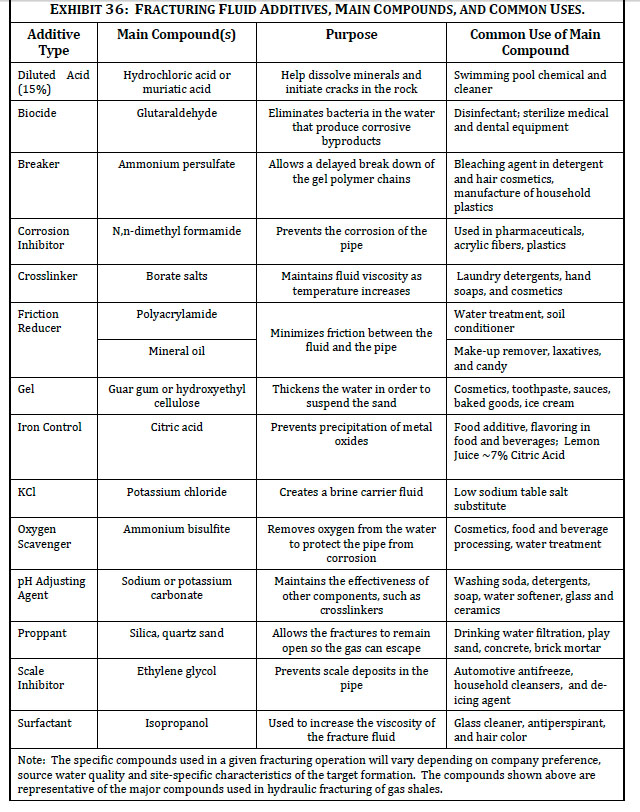- Home
- Deceptions
- Solar
- Thermal Audit
- Ventilation
- Sensors
- Governance
- Environment
- Reference
- Contact
- News
Hydraulic Fracturing in Newfoundland and Labrador
[Return to Policy Summary Page]
There is currently commercial interest in fracking in Newfoundland. Official government policy has not yet formed although there is dissent (e.g. they don't want it) from scientists within the public sector. Since cabinet briefs are secret in this province, the public will never know what those opinions are.
A Special Report on the Public Forum on Horizontal Slickwater Fracturing (April 7) at Port au Port East
Fracking (Hydraulic Fracturing)
Fracking should be banned in Newfoundland and Labrador. The short term benefit in drilling jobs is vastly outweighed by long term environmental risk. Fracking involves pumping a mix of water and chemicals into deep wells under enough pressure to crack underground rock. Natural gas can then escape from these cracks and is captured. Unlike conventional wells, the initial flow rates drop rapidly and soon become uneconomical. Many fracking companies will go out of business so when problems surface (such as methane in drinking wells and contamination of streams), the public will pay for the cleanup. The biggest price we can pay is making land permanently uninhabitable because the water is unfit for both animals (farming) and people.
Unlike mining which also makes an environmental mess (Little Bay mines for example has a huge cave-in, runoff and tailings dams in disrepair), fracking isn't limited to a small area like a mine is. Production rates decline rapidly and oil companies have to drill more holes and end up perforating vast areas.
In the USA for example, "There were more than 493,000 active natural-gas wells across 31 states in the U.S. in 2009, almost double the number in 1990. Around 90 percent have used fracking to get more gas flowing, according to the drilling industry."
The oil and gas isn't going anywhere
Other provinces and states are going forward with fracking -- however it would be wise to wait and see how it turns out for them. If a decade from now, techniques are developed that can extract the gas and tight oil safely, the resource will still be waiting and it will likely be more valuable than ever. It it turns out to be a catastrophic nightmare, then Newfoundland will have been spared.
The chart below is a general list of fracking fluids. Note that the actual mix is a secret, and that fracking is exempt from the Clean Water Act. This exemption is significant as it shows the tremendous power oil companies have over US politicians. it is reasonable to expect that the Canadian politicians will be just as easy to control.
Table of common fracking chemicals:

If you want to get into the guts of the issue, The Oil Drum is one of the best resources. You will find many articles and links to stories, as well as excellent commentary from professional engineers and geologists.
Tech Talk - More on Hydraulic Fracturing
Does Federal Regulation of Hydraulic Fracturing Make Sense?
Plan for Hydro-Fracture Drilling for Unconventional Natural Gas in Upstate New York
